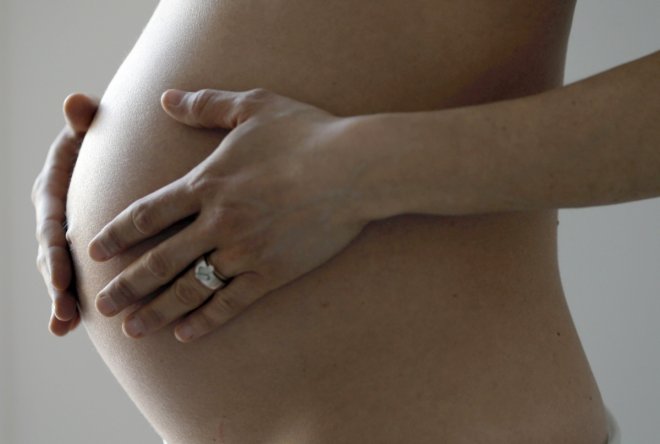
A recent study by one of the world's leading fertility specialist has revealed that men can also become pregnant as soon as 'tomorrow' with the help of womb transplantation. But, they will have to opt for cesarean operations as they wouldn't be able to deliver babies naturally.
Dr. Richard Paulson, president of the American Society for Reproductive Medicine said that eight children had already been born to women after womb transplants. This ensures that the success could pave the way for same incidents to happen in men as well.
In a meeting in San Antonio, Texas, Dr. Paulson said: "There's plenty of room to put a uterus in there. Men and women have the same blood vessels." He added that there is no specific reason for men not becoming pregnant.
Recently, there have been several cases where 'trans-men' have delivered babies. 'Trans-men' are those women who have had sex change operations to become a man, but they still have functioning wombs.
"There would be additional challenges, but I don't see any obvious problem that would preclude it. I think it would be possible," Dr. Paulson added. "There's plenty of room to put a uterus in there. Men and women have the same blood vessels."
When he was asked whether a male could be given a uterus, he said: "They could do it tomorrow." But, Dr. Paulson noted that it's still a very complicated procedure. "It's a huge team, it's not something somebody can do in a community hospital and just get it done."
According to Dr. Paulson, the hormones might have to be given to replicate the changes that go on in a pregnant woman. Once the uterus is transplanted, the doctors have to implant an IVF embryo.
Meanwhile, the British experts have already said that initiating a pregnancy in transgender women may be unethical. They have added that it is safer to opt for surrogacy.
Professor Julian Savulescu, a philosopher and bioethical specialist at Oxford University, told The Telegraph: "Uterine transplantation represents a real risk to the fetus and future child."
"Although technically possible to perform the procedure, you would also need to be very confident the uterus would function normally during pregnancy...Uterine rupture could cause the death or permanent disablement of the fetus," Savulescu added.









